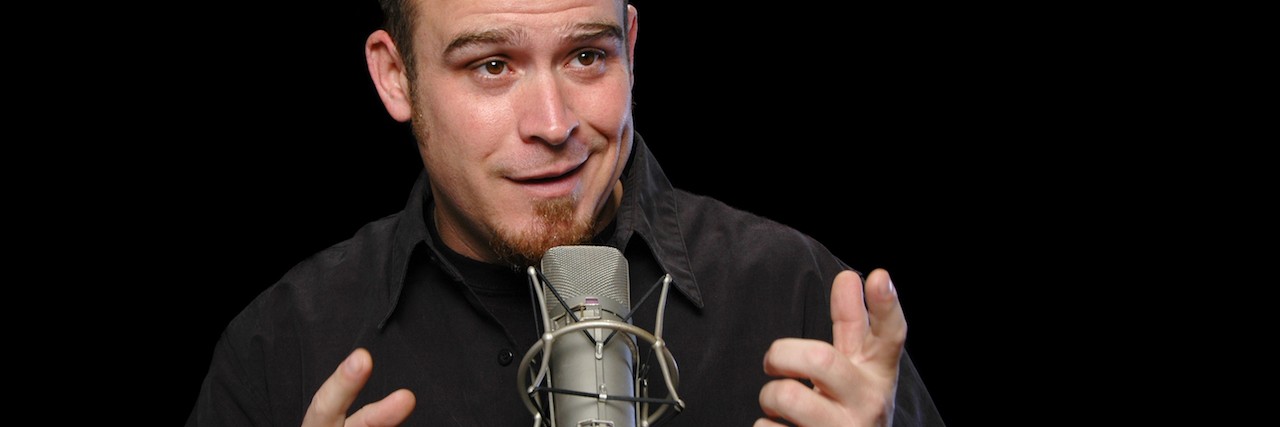My friend said to me, “Do you know what it’s like when you can’t get something out of your head?”
I sat back and actually laughed out loud.
Briefly, my friend looked confused, but then she laughed too and said, “Oh yeah. You’re so OCD,” to which I replied, “So very very.”
She can tell me I’m so OCD a thousand times. She’s earned it. I can also make jokes about her anxiety. It’s not that we take these conditions lightly. We are constantly dealing with our demons and have several scars, but we understand each other’s pain and respect it. So we don’t take these conditions lightly, but then again, we take these conditions lightly.
Using humor is a great way of coping with difficulties. If I didn’t joke about my OCD, I’m sure my anxiety’s anxieties would have anxiety. I feel like I have a healthy sense of humor. My Twitter bio even reads, “I have OCD. Don’t make me retweet myself.” But lately I’ve been questioning when it’s appropriate to laugh and who can do the laughing.
As a wannabe stand-up comic, I take humor pretty seriously. I think telling jokes can be an art form, and I’ve analyzed the ways tone, timing and word choice can have an impact on a joke. You might say I’m a little OCD.
But can you say that? Is that allowed? Sure, if you’re my friend, say what you want. I’m also not the language police, so I can’t tell you to stop even if you aren’t a friend.
But freedom of speech runs both ways. You can say what you want, and I can react. I don’t engage with everyone who makes a flippant comment about OCD. I do, however, write about the disorder, and I’m pretty sure I’ve come out of the closet to everyone I know. Even my mailman is sick of hearing about it.
Too often, people with OCD and other mental health issues are told they’re just too serious. Someone will make a joke and say, “Lighten up. It’s just a joke.” This is a way of making our concerns seem trivial, and when that happens, the true nature of OCD gets lost. My goal is to communicate the seriousness of OCD so you too can make jokes about it. When I know you’re an ally, someone who truly understands the horrors of my illness, I will laugh right along with you.
I prefer comedy that comes from a place of knowledge rather than ignorance.
The Mighty is asking the following: What is a part of your or a loved one’s disease, disability or mental illness that no one is aware of? Why is it time to start talking about it? Check out our Submit a Story page for more about our submission guidelines.

